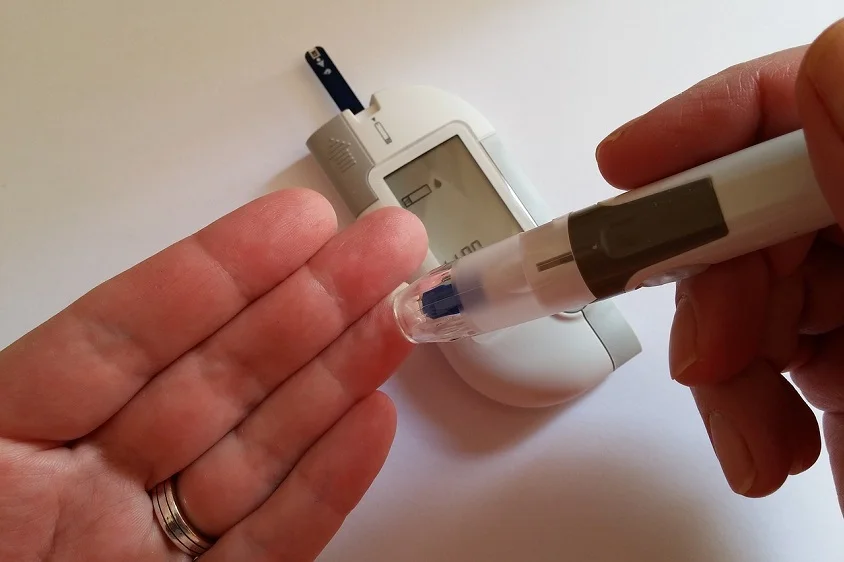Precision Medicine: Strategies to Effectively Control Blood Glucose Levels
- Updated on: Nov 22, 2024
- 3 min Read
- Published on Oct 4, 2023

Understanding Precision Medicine
Precision medicine, also known as personalized or individualized medicine, is an innovative approach to healthcare that considers each patient’s unique genetic makeup, lifestyle, and environment. It acknowledges that no two individuals are alike, even with the same medical condition. Instead of adopting a one-size-fits-all approach, precision medicine seeks to customize treatments for better outcomes.
The Role of Genetics
One of the fundamental aspects of precision medicine is the study of genetics. Genetic factors significantly determine an individual’s susceptibility to certain medical conditions, including diabetes. By analyzing a patient’s genetic information, healthcare providers can identify specific genetic markers that may influence how their body processes glucose.
Tailoring Medications
Precision medicine enables healthcare professionals to select medications, and treatment plans more likely to work for a particular patient. For individuals with diabetes, this means choosing the most suitable medications based on their genetic profile and how their body responds to different drugs.
Personalized Diet and Nutrition Plans
Diet plays a crucial role in blood glucose management, especially for individuals with diabetes. Precision medicine considers an individual’s dietary preferences, metabolic rate, and genetic factors to create personalized nutrition plans. These plans help individuals make nutritional choices that align with their body’s requirements.
Continuous Glucose Monitoring
Precision medicine also leverages advanced technologies such as continuous glucose monitoring (CGM) systems. These devices continuously track blood glucose levels, providing real-time data that can be used to adjust medication doses and lifestyle choices. CGMs are particularly valuable for people with diabetes, as they enable precise blood sugar management throughout the day.
Targeted Therapies
Precision medicine may identify specific therapies to address the underlying causes of high blood glucose levels. For example, specific genetic mutations may be responsible for insulin resistance. Identifying these mutations can lead to targeted therapies that address the root cause.
Personalized Exercise Plans
Exercise is another crucial component of blood glucose control. Precision medicine can help design exercise plans tailored to an individual’s fitness level, preferences, and health needs. This ensures that physical activity is not only practical but also enjoyable.
Predictive Analytics
Using data analytics and machine learning, precision medicine can predict future blood glucose fluctuations based on an individual’s historical data. This proactive approach allows for early intervention and adjustments to treatment plans, preventing extreme blood glucose spikes or crashes.
Challenges and Considerations
While precision medicine offers immense promise, it also comes with challenges. Gathering and interpreting genetic data can be complex and expensive. Privacy concerns regarding the sharing of genetic information must also be addressed.
Additionally, precision medicine is not yet universally accessible. Its widespread adoption may take time, and not all healthcare systems and providers have the resources or expertise to implement these strategies fully.
The Future of Blood Glucose Control
As the field of precision medicine continues to advance, it holds tremendous potential for revolutionizing the management of blood glucose levels. By tailoring treatments, medications, and lifestyle recommendations to each patient’s specific needs, precision medicine offers a more effective and personalized approach to diabetes care.
Conclusion
In conclusion, precision medicine transforms how we approach blood glucose control, particularly in individuals with diabetes. By harnessing the power of genetics, data analytics, and advanced technologies, precision medicine enables healthcare providers to offer tailored treatment plans and recommendations that lead to better outcomes. While challenges exist, the future of blood glucose management looks promising, thanks to the precision medicine revolution.
FAQs
Are precision medicine approaches only suitable for individuals with severe diabetes?
Precision medicine can benefit individuals across the diabetes spectrum, tailoring treatments based on genetic, lifestyle, and metabolic factors for effective blood glucose control.
How frequently should genetic testing be done for precision medicine in diabetes management?
Genetic testing frequency depends on individual health changes. Generally, it's done once, but periodic reevaluation may be necessary, especially with evolving medical knowledge.
Can precision medicine strategies replace traditional diabetes medications completely?
Precision medicine complements traditional treatments but doesn't replace them. It enhances personalized care by identifying the most effective medications and lifestyle interventions for each individual.
Is precision medicine applicable to all types of diabetes, including gestational diabetes?
Yes, precision medicine can be adapted for various diabetes types, including gestational diabetes. Tailoring interventions to individual needs is crucial for optimal outcomes.
How does precision medicine contribute to long-term diabetes management beyond blood glucose control?
Precision medicine considers holistic health factors, contributing to long-term diabetes management by addressing not only blood glucose but also related complications and overall well-being.












